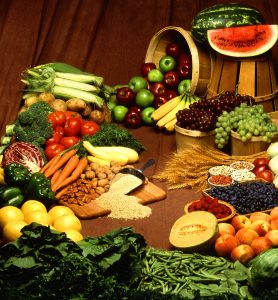Why you should consider plant proteins
 Many people choose to eat meat on a regular basis, but millions around the world are starting to make a different choice by turning to non-meat foods in order to meet protein needs. Using plant-based proteins can be challenging at first, but there are significant health, nutrition, and environmental advantages to making this choice so the challenge can be a step towards improved health.
Many people choose to eat meat on a regular basis, but millions around the world are starting to make a different choice by turning to non-meat foods in order to meet protein needs. Using plant-based proteins can be challenging at first, but there are significant health, nutrition, and environmental advantages to making this choice so the challenge can be a step towards improved health.
If you’re unfamiliar with plant protein sources, then you’re probably not alone. Some of the most common ones include seeds, lentils, peas, nuts, and tofu or soy. Non-meat protein sources may also come from products such as cheese, yogurt and milk. When you consume a variety of these foods, you can easily meet your daily protein recommendations. While your protein needs may vary slightly, men should aim for about 56 grams per day and women should try to get about 46 grams for day.
What you may not realize about plant protein sources is that they contain greater amounts of nutrients than meat and will have a different effect on your overall health. Consuming protein from non-animal sources can help to decrease your chance of developing several chronic diseases including type 2 diabetes, certain types of cancer, and high blood pressure. Also, avoiding meat proteins in your overall diet may increase your lifespan by several years. In general, people who avoid meat and get their protein from plant sources tend to have a lower body weight and a decreased risk of obesity, as well as the conditions that come with carrying excess weight. Although people choose plant proteins for a variety of reasons, increased health is certainly a huge potential benefit.
There are also environmental benefits to consuming plant proteins instead of meat. To produce one gram of a meat protein, this process requires up to 26 times the land, water, and fuel compared to one gram of soy protein. Using fewer resources is a huge benefit, but plant protein sources do not result in the same concentration of chemicals and pesticides that are released in the water and soil through their production. The sustainability of plant proteins is another significant reason why some are turning their backs on meat and looking for other options.
Nutrition concerns have led some to consider making this switch as well. The non-animal sources of protein usually have fewer calories, total fat, and cholesterol when compared to a similar amount of meat. By choosing these protein sources, you’re making a healthier decision for heart health. Also, unlike meat proteins, these plant-based proteins such as nuts, beans, and legumes contain a high amount of fiber which can lower your risk of diabetes and heart disease. You may also be aware that nuts and seeds contain unsaturated fats that are considered healthy fats and may provide significant benefits for your heart and your overall health.
However, while there are significant benefits for your overall health and the environment, keep in mind that most plant proteins are incomplete proteins. This means that they may not be as easily absorbed and utilized by your body. So, while you can safely follow a vegetarian diet and consume an adequate amount of protein, you should pay attention to the foods that you eat. Make sure that you’re getting several options of plant protein sources in your diet every day and you shouldn’t have a problem getting all of the amino acids that you need on a daily basis.
When making a total or partial switch to vegetarian proteins, you may also want to pay attention to how much protein you’re getting on a daily basis. As a general rule of thumb, try to consume a plant protein source at every meal, which will typically be good enough to get all of the macro-nutrients that you need in a day. If you’re worried about your overall protein intake, you can also have plant proteins such as nuts for snacks to increase your overall intake.
In general, eating non-meat proteins is a healthy way to take in your protein requirements. If you’re interested in reducing chronic disease risk, then turning to plant protein sources is a great idea. With so many options available today, you won’t have any difficulty meeting your protein and nutrient needs through a varied diet.
